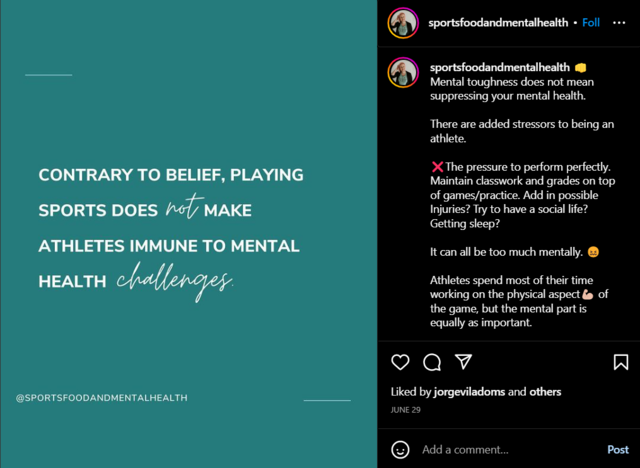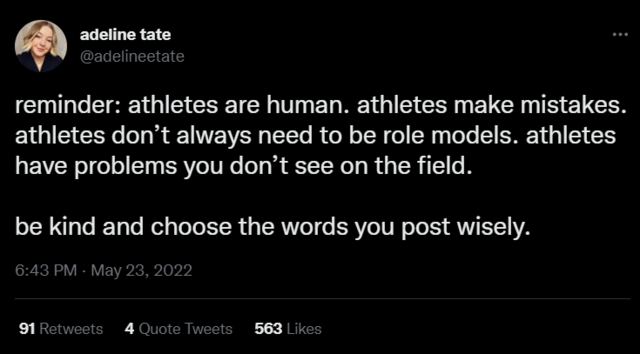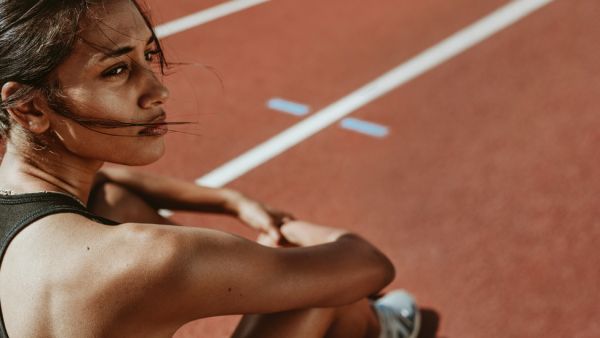ALBAWABA - Nowadays, mental health has become more spoken about than ever before, and yet the stigma and shame surrounding it still persist. Speaking up and asking for help might be even more difficult for celebrities and professional athletes living under the spotlight.
Most of us know that exercise plays a vital role in our overall well-being, especially when it comes to our mental health. However, just because exercise helps improve our mental health, it does not mean that athletes are immune to suffering mentally or even developing a mental illness.
In fact, research showed that there is a 34 percent prevalence of depression/anxiety among elite athletes. Another study made among Canadian professional athletes reported that athletes are at a higher risk of developing mental disorders than the general population. With the stigma and shame that still surrounds mental illness, the numbers might even be higher. That is why it is instrumental that we talk about the mental health of professional athletes and shed light on the fact that they are vulnerable to it just like the rest of us.

Athletes are human too
When an athlete is injured, the world rushes to wish them well and give them the time they need to heal. But unfortunately, that is rarely the reaction if someone needs time off for their mental health.
What so many of us fail to see is that athletes are not just entertainers, they are also human. By viewing them this way, we are unintentionally robbing them away from their humanity and even a mere injury, misstep, or new rumor can make us completely disregard them. This ultimately means that we no longer see them as humans who have their own struggles.

Even though the world still has a long way to go when it comes to normalizing the conversation around mental health and illness, many athletes are challenging the stigma and speaking up. In 2018, American revolutionary tennis player, Serena Williams spoke about her personal struggle with postpartum depression.
Other leading athletes who were also brave enough to speak out included Simone Biles, who withdrew from the Tokyo 2020 Olympics women’s team gymnastics final to take care of her body and mind. Naomi Osaka and Kevin Love were also among the professional athletes who showed resilience and strength in opening up about their own struggles.
“I have to focus on my mental health and not jeopardize my health and well-being. It just sucks when you’re fighting with your own head.” - Simone Biles, American Olympic gold medalist
The good thing is that as star athletes speak out and highlight their mental health struggles, leading organizations are also becoming aware of ways to better support these athletes. For instance, FIFA launched the #ReachOut campaign in 2021 to advocate for the importance of mental health and illness, challenge the stigma, and encourage people to speak up.
This year, FIFA also collaborated with Calm, a mindfulness and meditation application, to provide all football players, coaches, and trainers with a complimentary subscription throughout the FIFA World Cup 2022. Fans were also offered 50 percent off their subscriptions.
“Mental and physical health are equal partners in the combined well-being of a person, and care for both must be seen as integral in caring for the footballing family,” - Andrew Massey, FIFA’s Medical Director
Prior to this year’s World Cup, Prince William reached out to some of England's football players to ensure they are prepared both physically and mentally.
A very special conversation about mental health coming tomorrow.@Copa90 @HKane @_DeclanRice pic.twitter.com/4MIwqjWMea
— The Prince and Princess of Wales (@KensingtonRoyal) November 6, 2022
Mental health is for everyone
The reality of things is that we are all human and we all need to prioritize our mental health. By shifting the narrative towards creating better mental health resources and support, professional athletes will be more open to speaking up and asking for the support they need.








